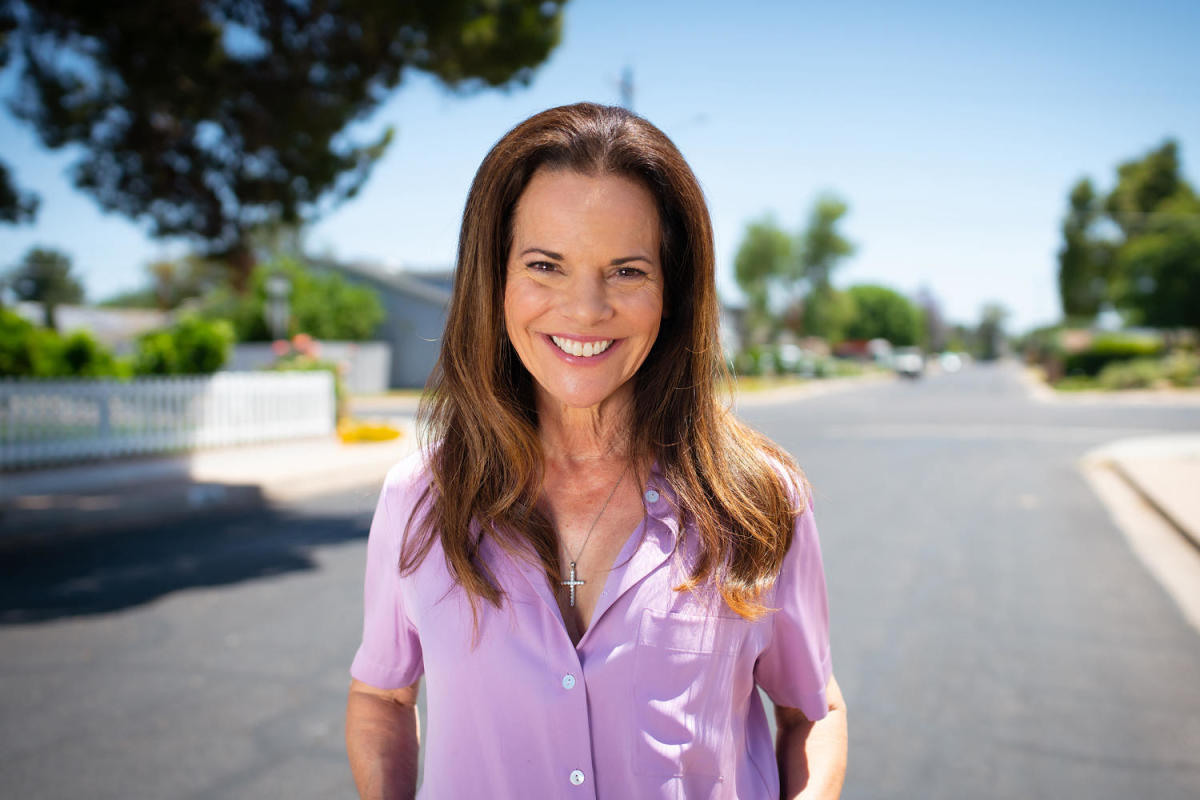PHOENIX — Vice President Kamala Harris is on track to become just the second female major-party presidential nominee. But further down the ballot, the number of women jumping into congressional races is down this year after hitting record highs in 2020 and 2022.
The trend tracks against a surge in female voter registration following the Supreme Court’s Dobbs decision returning abortion policy to the states in 2022. And despite the decline, the totals are still higher than they ever were before 2018, when hundreds more women than ever ran for the House of Representatives in the midterm elections during former President Donald Trump’s administration.
But it’s still a notable decline: The Rutgers University-based Center For American Women and Politics, the preeminent organization tracking the topic, counts 466 women running as major party candidates in the House, down from 583 female candidates in both 2020 and 2022.
One of the first primaries on the docket, when congressional races start back up next week after a summer break, exemplifies the trend. In Arizona’s 1st Congressional District — one of only 22 toss-up House races in the entire country, per the Cook Political Report with Amy Walter — Democratic voters will have a half-dozen options competing on the primary ballot for a fall campaign against GOP Rep. David Schweikert. Only one candidate, Marlene Galán-Woods, is a woman.
“This is hard, and it’s not for the faint of heart,” Galán-Woods said about why it might be that fewer women are running this year. “But I like doing the hard thing.”
Galán-Woods’ political experience is limited compared to her main challengers, with a career in broadcast journalism that sometimes draws comparisons to Republican Senate candidate Kari Lake. (Galán-Woods doesn’t fancy the parallel.) Other candidates include Andrei Cherny, a businessman and former chair of the Arizona Democratic Party who ran for Congress previously, and Amish Shah, a former member of the Arizona state House.
But the mother of five has racked up key endorsements, including from Democratic state Attorney General Kris Mayes, with Galán-Woods arguing that her experience as a journalist has equipped her with skills that will make her an effective government official.
“I’m a really good listener, and it’s lacking, lacking in government, it’s lacking in discourse, it’s lacking in our society,” said Galán-Woods of the overlap between her skills as a journalist and the skills needed to be an effective representative.
Kelly Dittmar, the director of research at the Center For American Women and Politics, said the cause of this year’s decline is unclear. “We can’t right now say why,” she said, pointing out that fewer men are running for Congress in 2024, too.
One of the potential reasons Dittmar considered echoed Galán-Woods: “If women look at these institutions, and in this case, Congress, and think that that’s not the place that they can get things done, they’re not going to run.”
There have been some notable shifts since the Dobbs decision, now more than two years old. CAWP found a 5.7% increase in Democratic women running for state House across the country, while there was a decrease of 6.5% among Republican women.
“If they’re motivated by Dobbs and abortion, where they can have an impact,” Dittmar said, then “right now, it seems that the states, based on this decision, are going to be really a primary site for legislating on this issue.”
When Arizona’s state Supreme Court ruled earlier this year that a near-total abortion ban from 1864 was enforceable, it was the state legislature that passed a repeal of the ban, which was signed by Democratic Gov. Katie Hobbs.
But apart from policy considerations, things like “toxicity, the unpopularity of Congress, can affect the willingness to run, as can perceptions that it’s a toxic place to work,” Dittmar said at a July 23 press conference.
“The perceived toxicity extends to harassment abuse faced by officeholders, and we know that that abuse is gendered and racialized and that it can discourage women, and especially women of color, from running,” she said.
Galán-Woods said she has dealt with “certain things” while running as the lone woman in her race. But she struck a defiant tone.
“I have a job to do. I have girls and women to protect, and I have democracy to uphold, and that’s what I focus on,” she said.
This article was originally published on NBCNews.com





